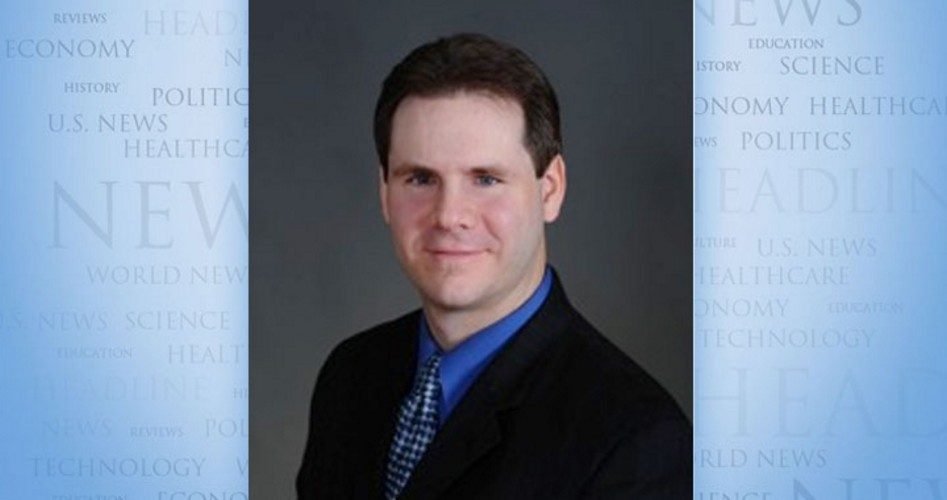
When is a thing generally abandoned?
When it no longer appears to be working.
This is the problem “democracy” has today, suggests pundit Pat Buchanan, and this is partially because of the current behavior of its main representative: US.
The United States used to be a shining beacon on a hill, possessing not just the muscle but the moral stature to spread its message. Thus did we help propagate representative government across the Earth.
But what does the world see today? While serious problems exist, from Islamic jihadism to a rising China to rogue states going nuclear, foreigners witness the United States tearing herself apart over whether President Trump directed lawyer Michael Cohen to pay Stormy Daniels to clam up about a decade-old one-night stand, says Buchanan.
Moreover, Democrats such as incoming House Judiciary chairman Jerrold Nadler (D-N.Y.) claim it’s an “impeachable offense.”
The world also sees an America consumed with the sexual-devolutionary agenda: Heather Has Two Mommies in schools, Drag Queen Story Hour, boys claiming girlhood in girls’ bathrooms, and men in women’s sports.
As Buchanan puts it, “We are an unserious nation, engaged in trivial pursuits, in a deadly serious world.”
Not only that, many Americans aim to flood the country with unassimilable foreigners, and basic government functions such as securing the borders and expelling illegals are points of cold civil war.
In fact, should foreign enemies think they’d have to fight us at all? We’re busy fighting ourselves. The Chinese could be laughing hysterically, remembering Napoleon’s advice, “Never interfere with an enemy while he’s in the process of destroying himself.”
So, Buchanan wonders, does the world still ask, “Why can’t we be more like America?”?
“Does the world still envy us our free press,” he continues, “which it sees tirelessly digging up dirt on political figures and flaying them with abandon?”
Another issue is that representative government also now has viable competitors. China illustrates how a one-party state, sans “democracy,” can create an economically vigorous world power; and Vladimir Putin is the standard-bearer for autocratic nationalism. Meanwhile, Turkey’s president Erdogan responded to a 2017 coup attempt by purging enemies strongman-style, but nonetheless is welcomed in world capitals.
Yet today Americans believe in “shallow things, shallowly,” to quote journalist Brett Stephens. Our current claims to fame are not virtues, but “values” such as equality and, Buchanan notes, “diversity!” We’re more balkanized than ever, too, a modern-day, nation-scale Tower of Babel.
Yet pointing out that Europe is rejecting diversity, Buchanan asks, “Is there any country of the Old Continent clamoring for more migrants from the Maghreb, sub-Sahara or Middle East?”
In fact, the European masses are rejecting “dieversity” and internationalism in favor of tribalism and the “ethno-nationalism whence the nations came,” observes Buchanan.
Our “democracy” may be sellin’ diversity, he says, but most of the world ain’t buyin’.
Moreover, the Uighurs and Tibetans in China, Mideast Christians, Rohingya in Myanmar, sub-Saharan black African tribes, and South African whites can all “testify that popular majority rule often means mandated restrictions or even an end to minority rights,” Buchanan further notes.
To quote him one last time, “In the Middle East, free elections produced a Muslim Brotherhood president in Egypt, Hamas in Palestine, Hezbollah in Lebanon. After this, a disillusioned Bush 43 White House called off the democracy crusade.”
The moral of this story: Sometimes representative government is just millions of people making slowly and inefficiently the decisions a dictator could effect with the stroke of a pen. This isn’t to exalt dictatorship, but to warn of another mistake: deifying democracy.
President George W. Bush and the other neocons pursued “nation building,” thinking they could install enduring Western-style republics in Iraq and tribal Afghanistan partially (yes, there can be other factors) because they viewed “democracy” as a cure.
In reality, it’s a system fit only for people who already have been cured.
Our Founders knew this and would have laughed, or cried, at the nation-building thesis. They never claimed our system of government was for everyone. Our first president, George Washington, pointed out that “virtue or morality is a necessary spring of popular government.”
Our second president, John Adams, was even more blunt. “Our Constitution was made only for a moral and religious people. It is wholly inadequate to the government of any other,” he warned.
Thus did wiser Westerners, long ago, approach rough-hewn lands not with democratizers but missionaries. They understood that if you take care of “First Things” — secure the moral and religious foundation — the secondary things will take care of themselves. As Matthew 6:33 tells us, seek “ye first the kingdom of God, and his righteousness; and all these things shall be added unto you.”
But we’re too sophisticated for “sky-fairy” talk now; spreading Christianity is just so yesterday and, besides, how dare you impose Western values!
Unless they’re the values of “democracy,” that is.
For believing in shallow things shallowly, moderns often fancy that human systems can change human nature. Thus did they call WWI “The war to end all wars” and democracy the system to end all wars.
What do you think, though, the Founders would have said about Bush doctrine and democracy without Christianization in Afghanistan? Here’s what should really scare you, however.
Given how we’ve de-Christianized and demoralized ourselves, what would the Founders say about republican government in 2018 America? Are we a “moral and religious” people suited to our Constitution?
Or have we become the dreaded and dictatorship-bound “other”?


